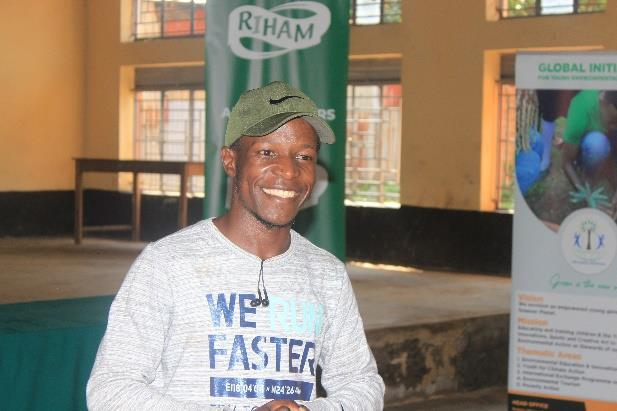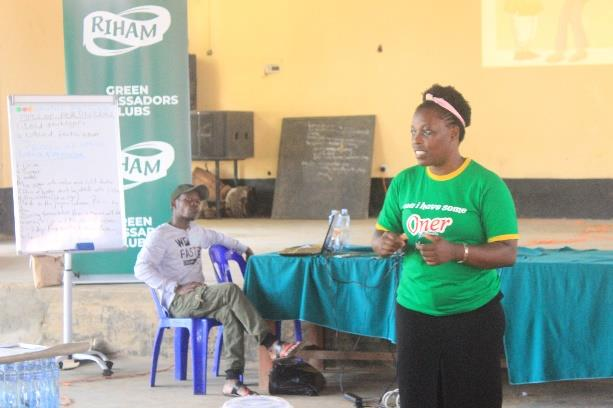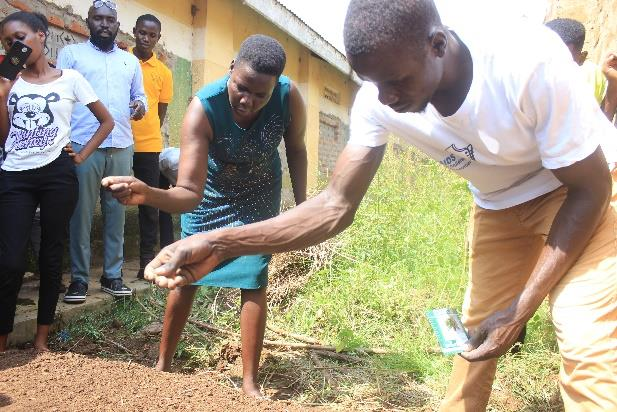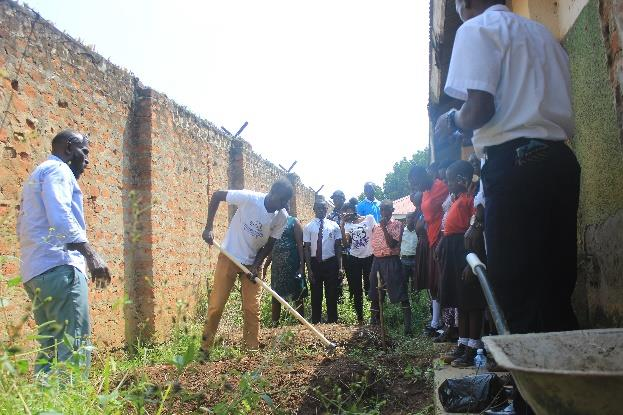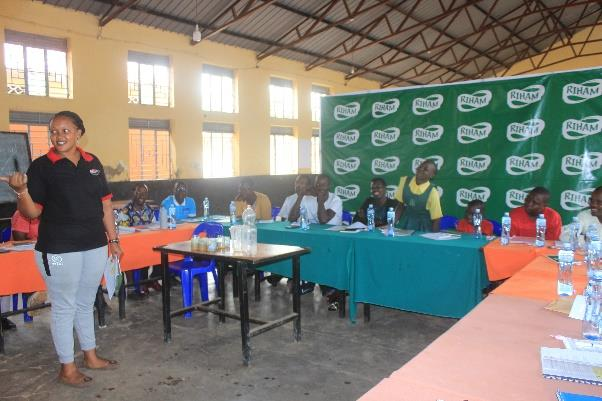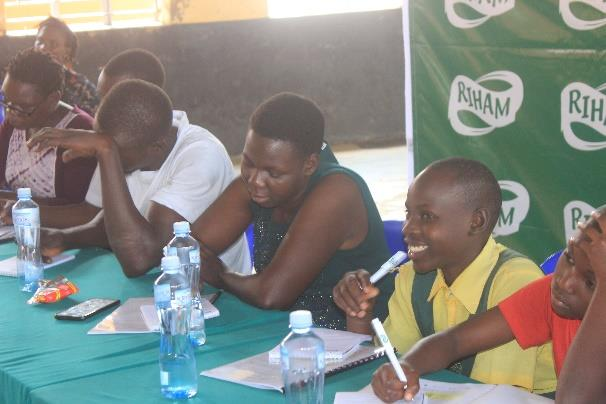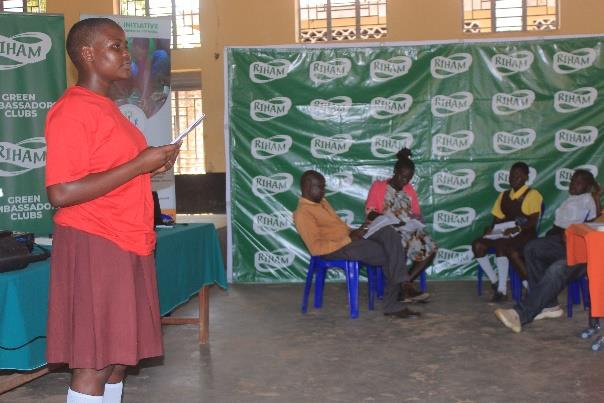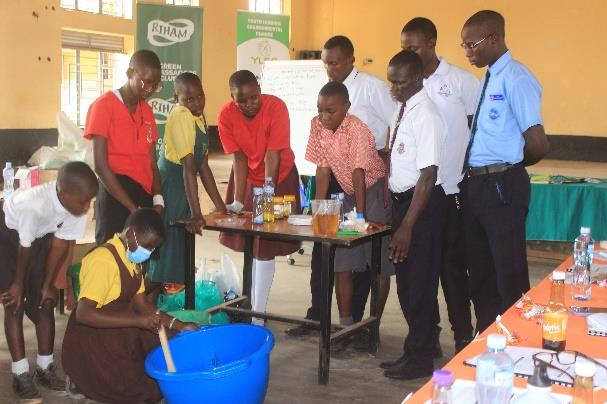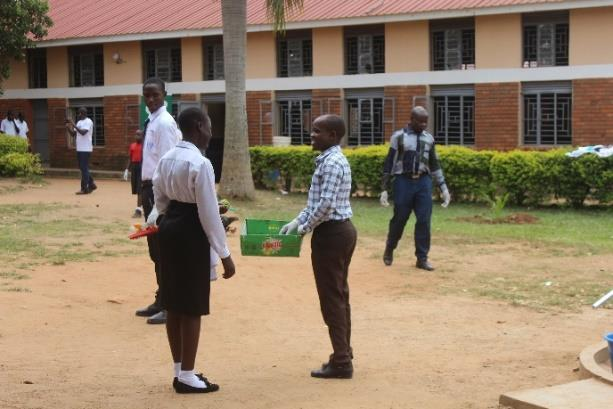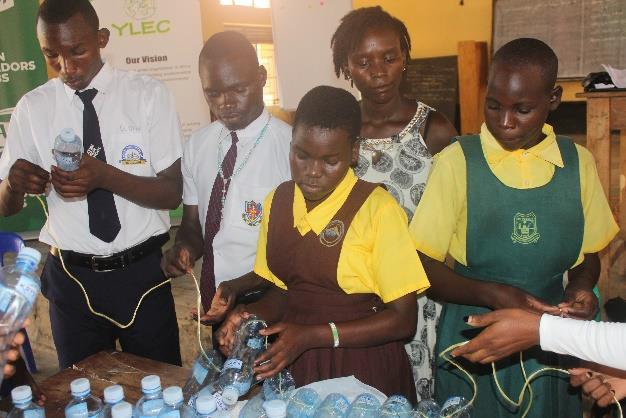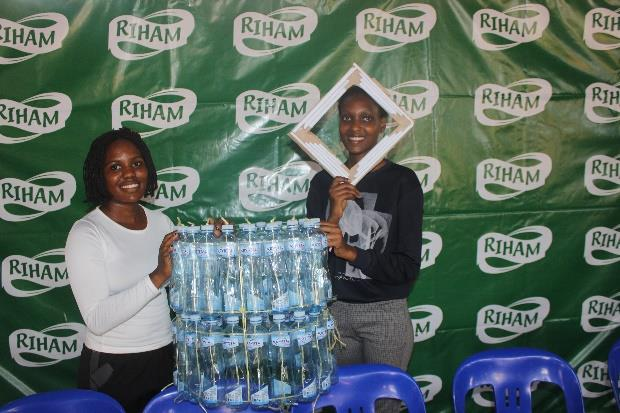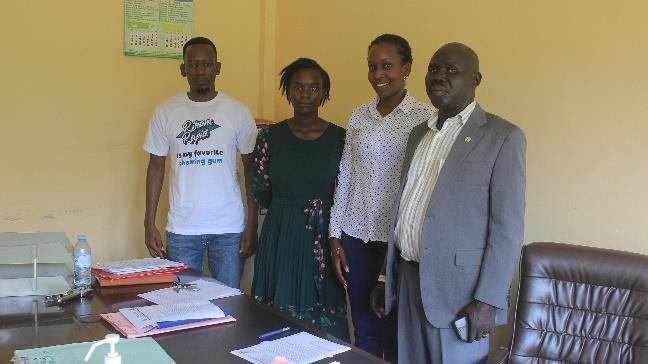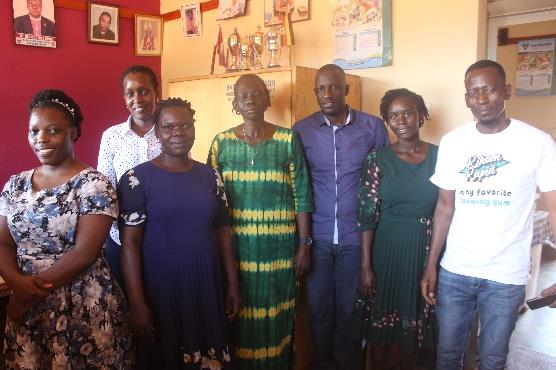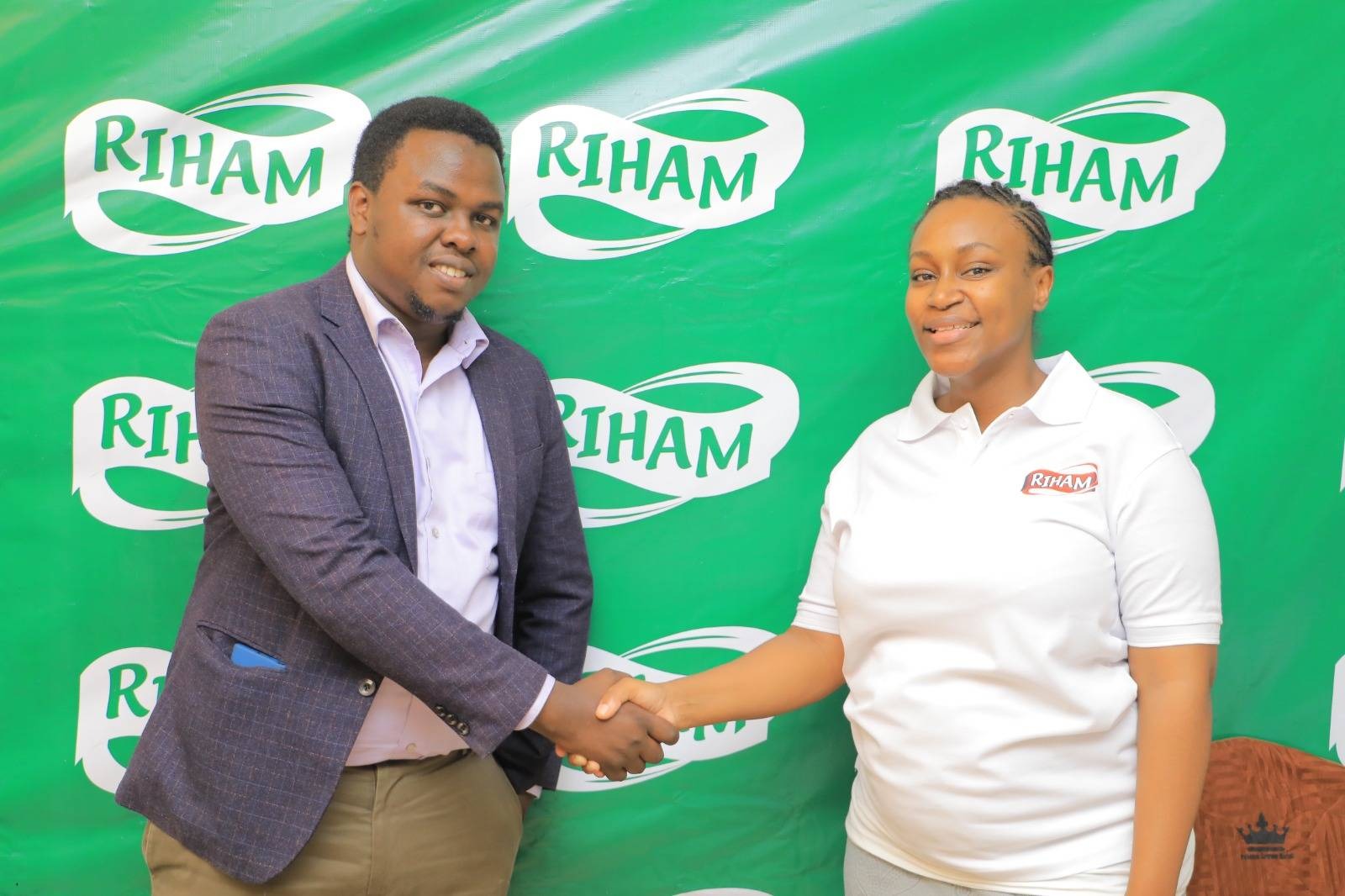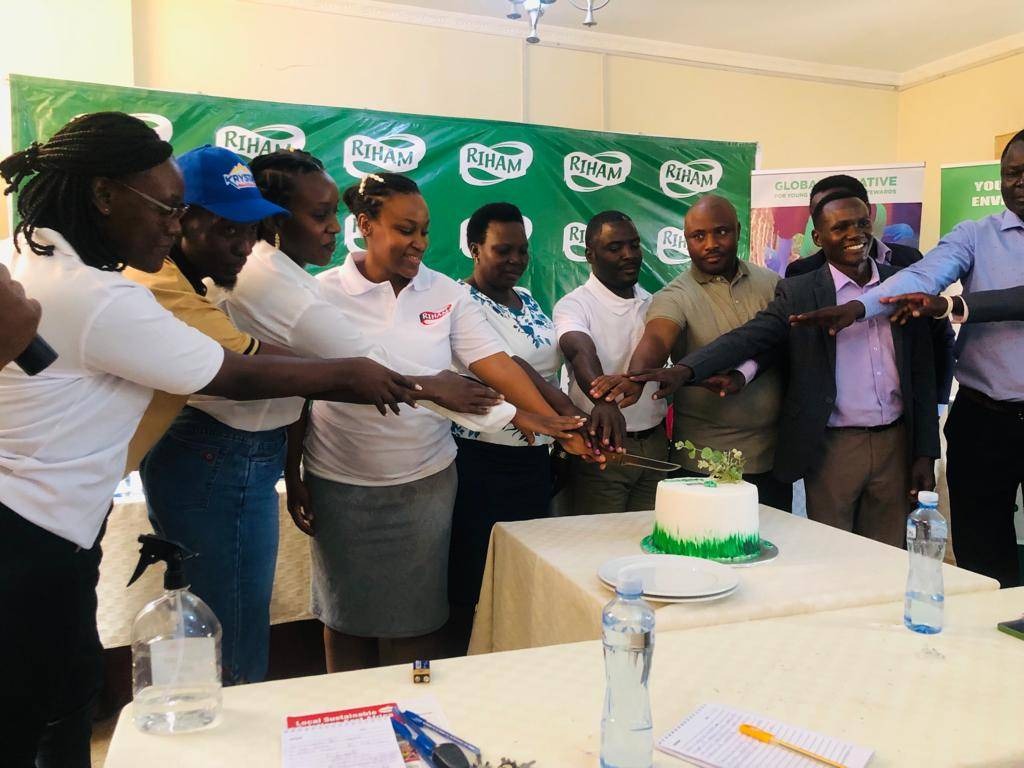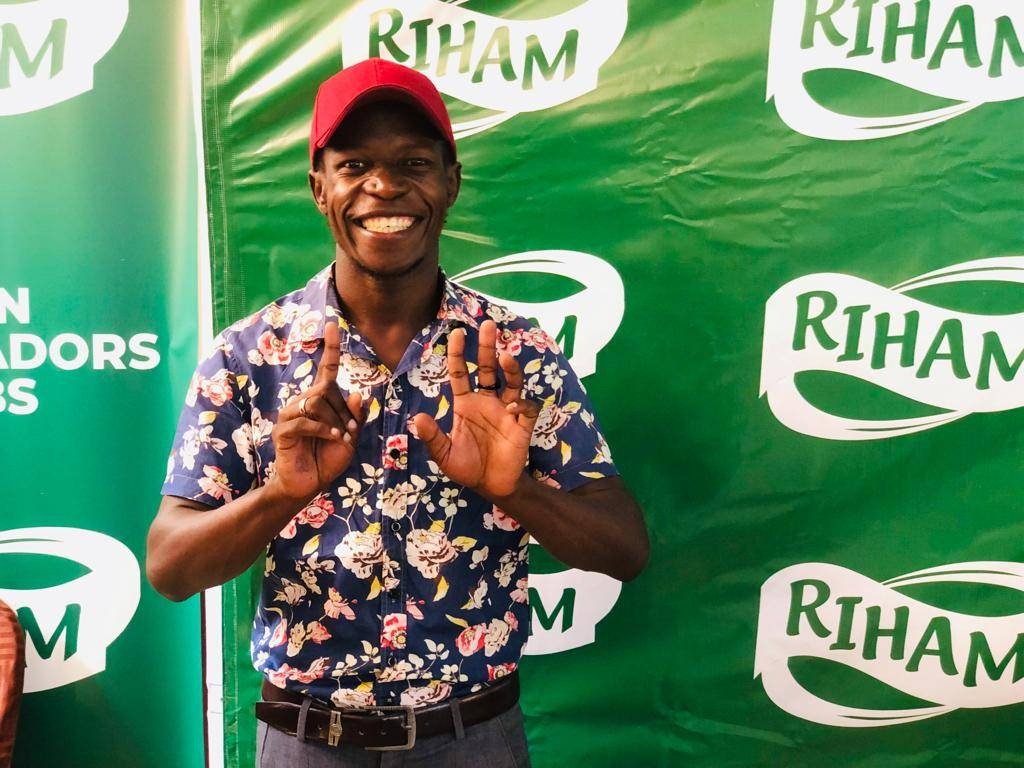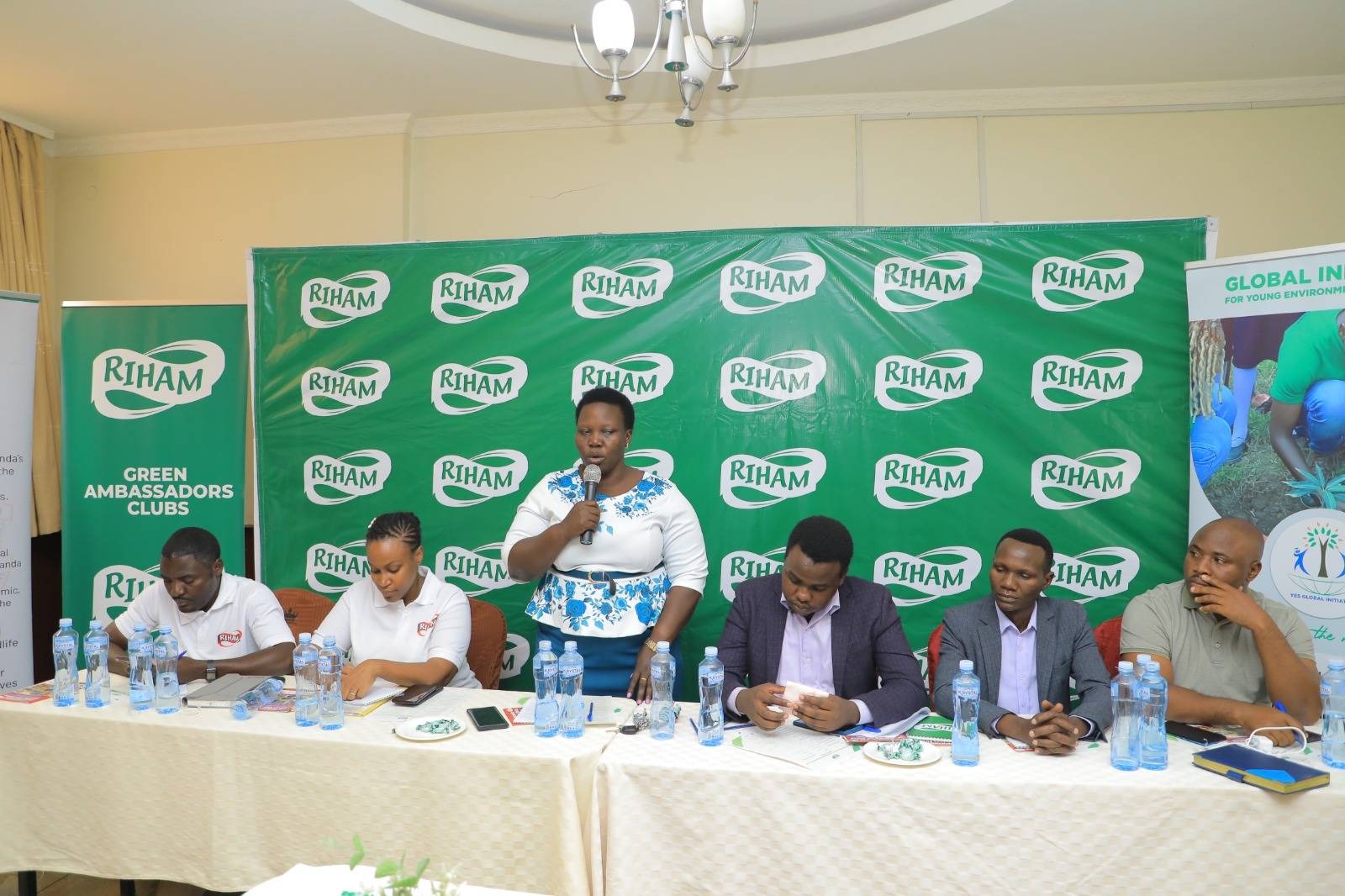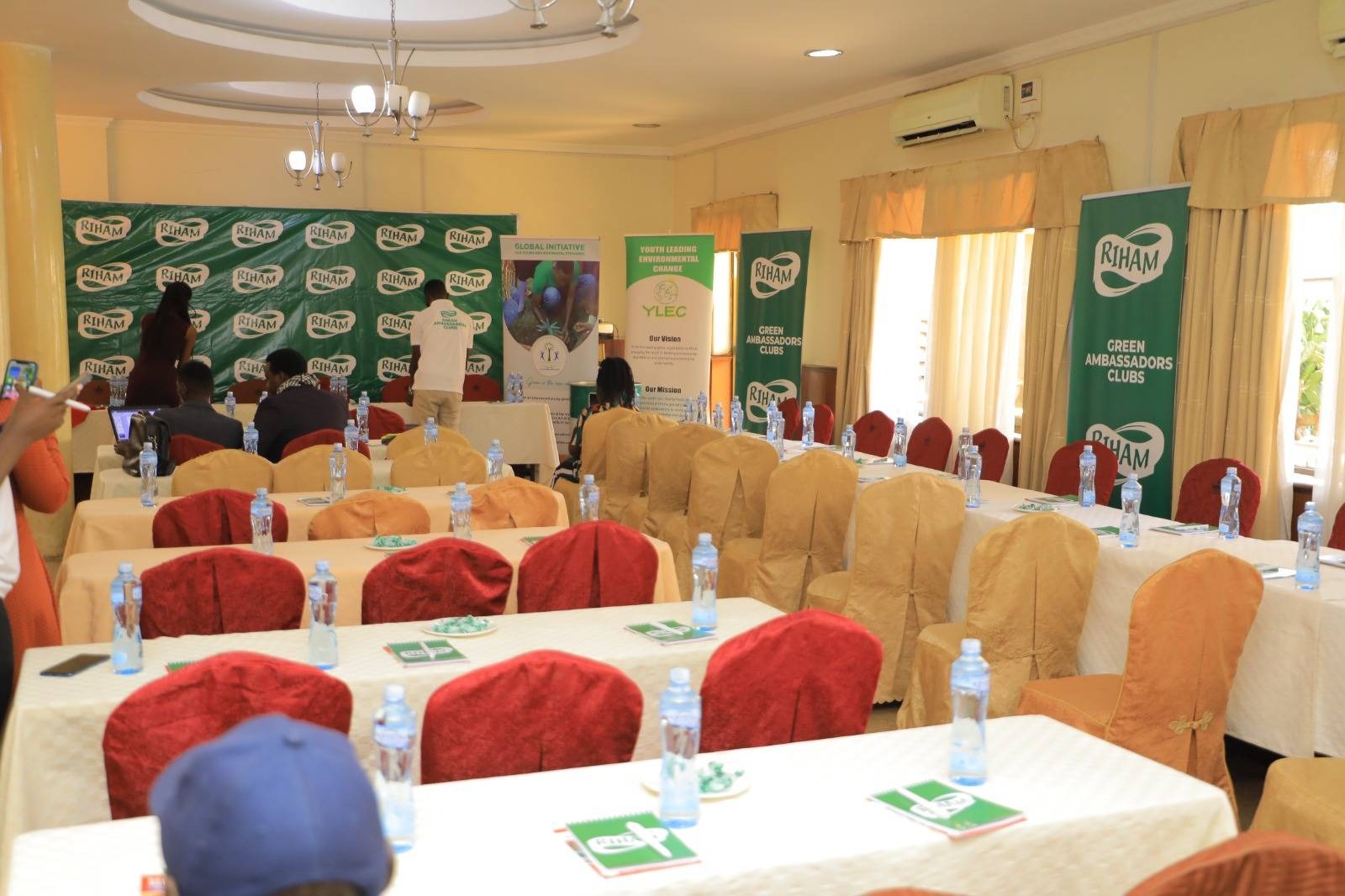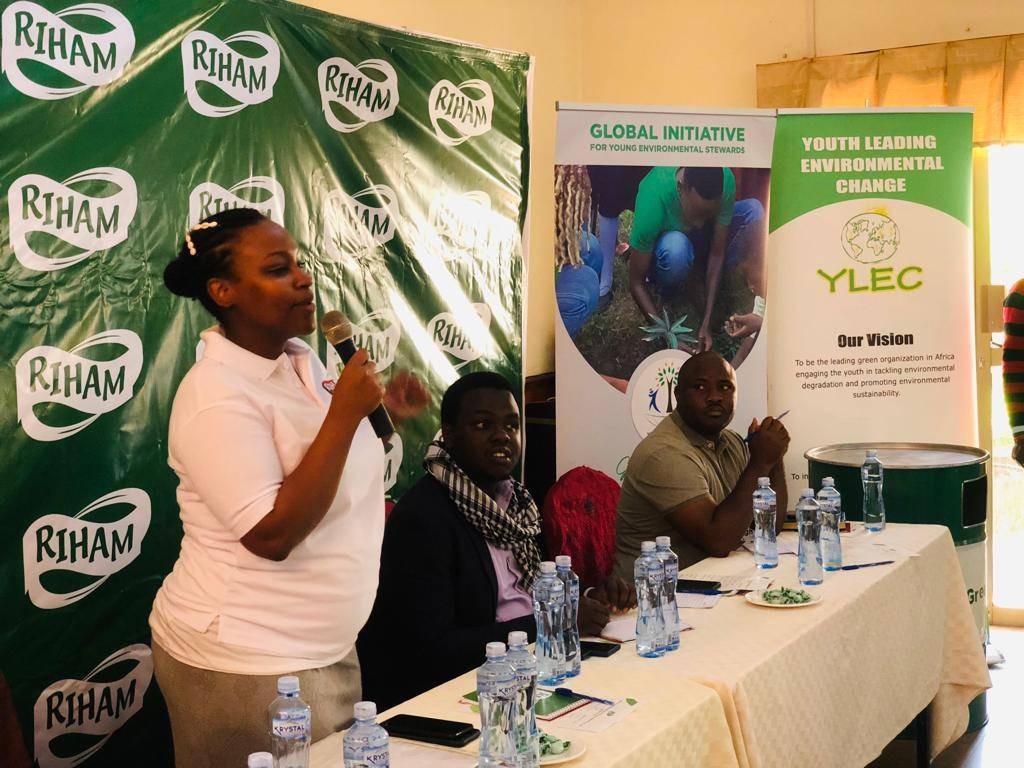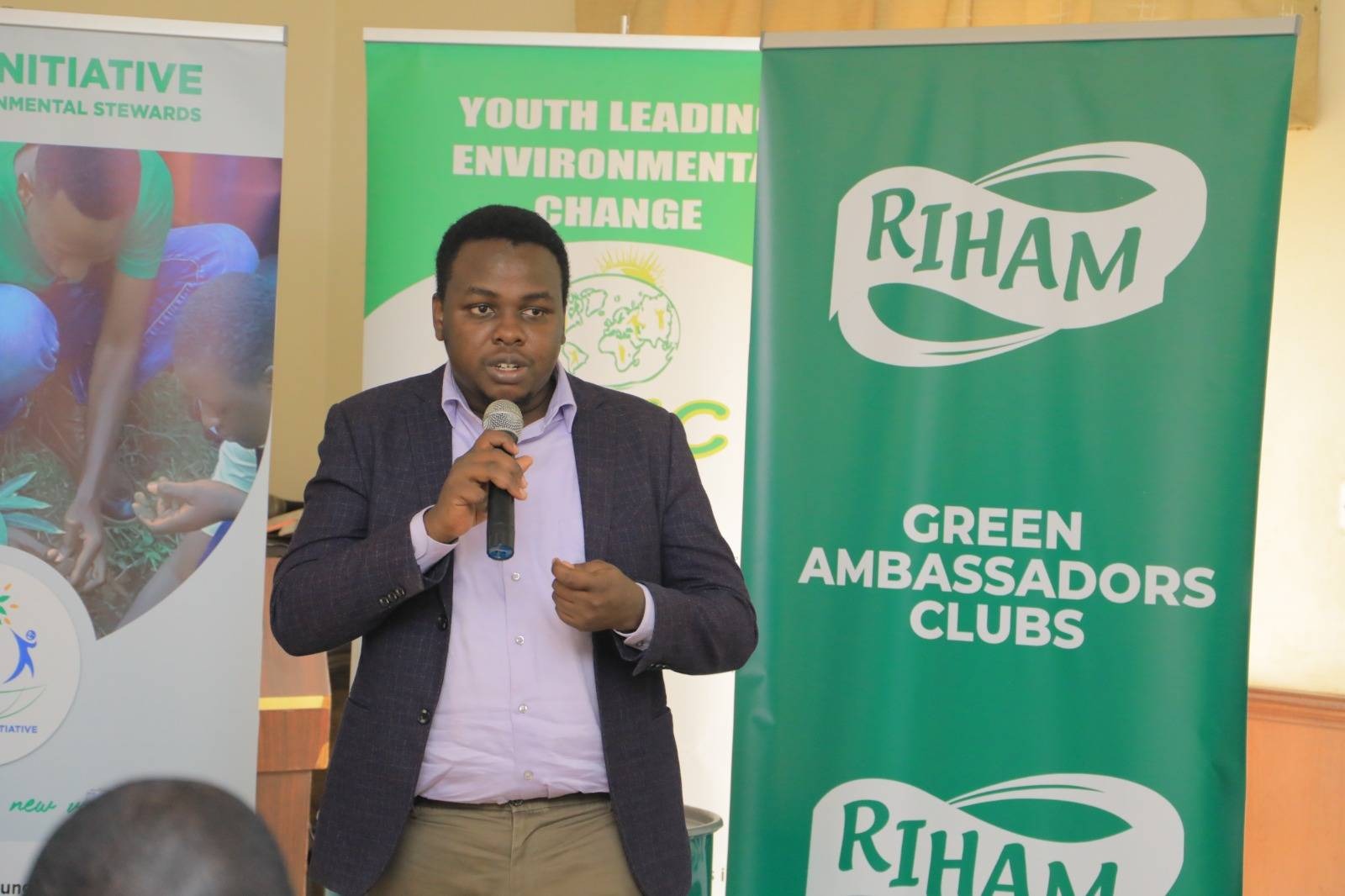Riham Green Ambassadors Clubs
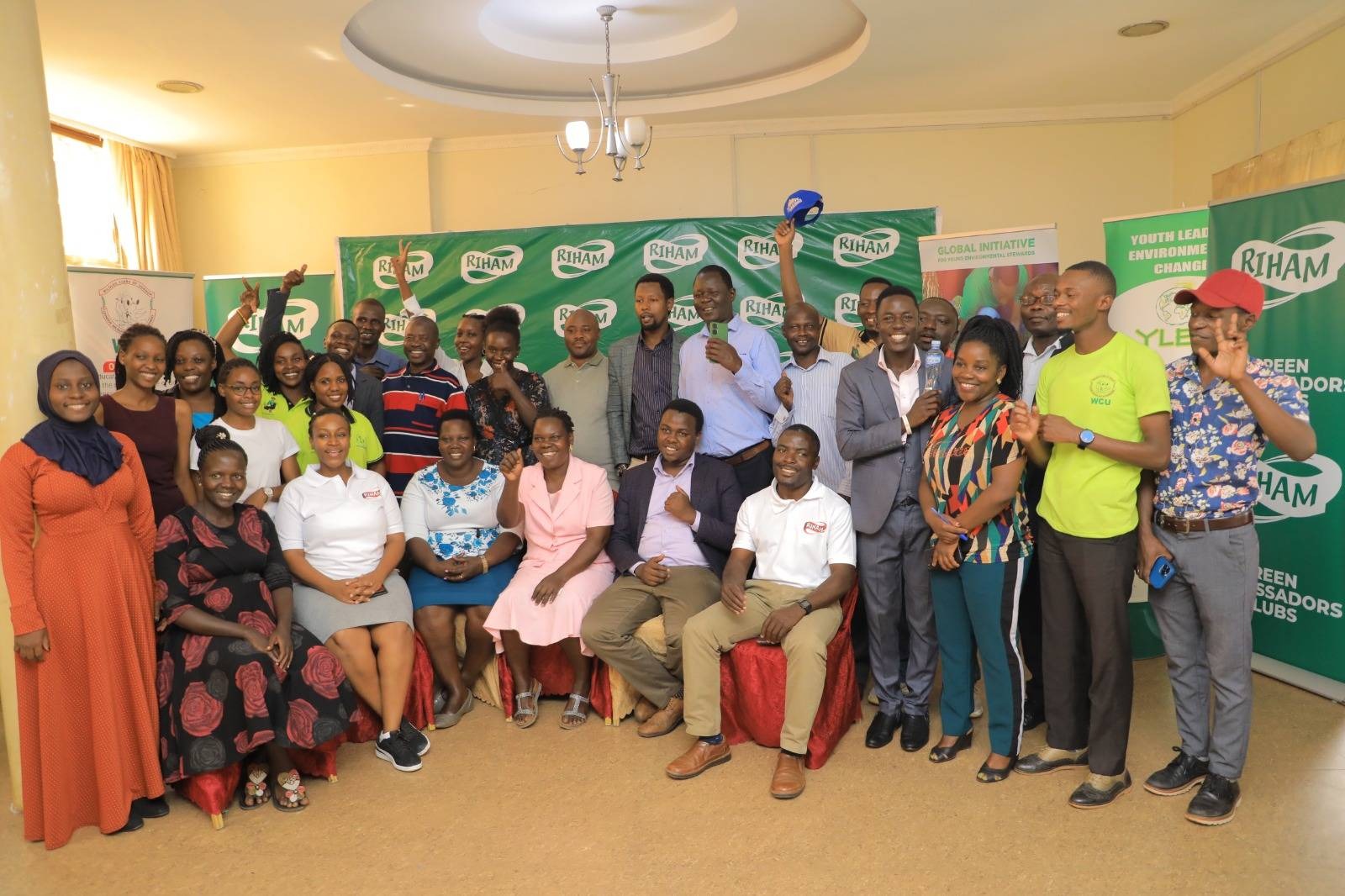
Riham Green Ambassadors Clubs
Project Description
With the pressing need to address global environmental challenges, the Riham Green Ambassadors Clubs campaign takes a bold step towards inspiring a sense of responsibility and passion for nature among Gulu’s vibrant youth. By equipping them with knowledge, empowering tools, and a platform to create positive change, this initiative aims to forge a sustainable legacy for generations to come.
The Riham Green Ambassadors Clubs initiative is set to empower Gulu’s youth through a multifaceted approach that combines education, advocacy, and practical activities. The campaign aims to create an enabling environment where young people can actively engage in environmental protection and conservation efforts.
Through an array of engaging workshops, interactive seminars, and field trips, the initiative will provide participants with a comprehensive understanding of pressing environmental issues and the means to address them. From waste management and sustainable agriculture to renewable energy and biodiversity conservation, the Riham Green Ambassadors Clubs campaign covers a broad spectrum of topics to foster holistic environmental literacy.
Furthermore, the campaign will facilitate collaborative projects, where young minds can put their newfound knowledge into action. By initiating community clean-up drives, tree planting initiatives, and awareness campaigns, the Riham Green Ambassadors Clubs will inspire a wave of positive change, not only in Gulu but also beyond its borders.
Updates
Expert trainers from the Green Ambassadors Club and the Rotaract Club of Nkumba Stewards conducted sessions on entrepreneurship and financial literacy. Students were empowered with knowledge on developing entrepreneurial ventures utilizing waste materials and were equipped with financial management skills.
This training bolstered participants’ ability to create sustainable businesses and positively impact their communities while contributing to environmental conservation.
Ms. Annet Nakkazi and Mr. Anderson Onyango taking participants through financial literacy and entrepreneurship skills.
The urban farming training began with an orientation session, where participants were introduced to the concepts of urban farming, its importance in sustainable living, and its potential economic and environmental benefits.
Site Selection and Preparation
Participants were guided through the process of selecting suitable sites for urban farming within their respective school compounds. The process included assessing factors such as sunlight exposure, soil quality, and accessibility. Practical sessions involved preparing the chosen sites by clearing debris, loosening the soil, and making necessary adjustments.
Raised Bed Construction
Participants were introduced to raised bed gardening as an efficient and space-saving urban farming technique. The session included the construction of raised beds using locally available materials. This method not only optimizes space but also improves soil drainage and aeration.
Composting and Soil Enrichment
Composting was emphasized as a sustainable way to enrich soil and promote plant growth. Participants learned the basics of composting, including selecting suitable materials, creating compost bins, and maintaining proper composting conditions. The session aimed to encourage participants to recycle organic waste and create nutrient-rich compost for their urban farming plots.
Crop Selection and Planting
The urban farming curriculum covered a variety of crops suitable for urban environments. Participants learned about selecting appropriate crops, understanding planting seasons, and optimizing crop layout within limited spaces. Practical planting sessions allowed participants to apply their knowledge by sowing seeds or transplanting seedlings.
Water Management and Irrigation
Water management is crucial in urban farming. Participants received training on different irrigation methods, including drip irrigation and watering techniques optimized for water conservation. Practical demonstrations showcased proper irrigation practices to ensure optimal plant health and growth.
Pest and Disease Management
Urban farmers were educated on identifying common pests and diseases that affect crops. Integrated pest management strategies, including natural remedies and preventive measures, were discussed to minimize the use of chemical pesticides. Participants learned to monitor their crops and take timely actions to protect their plants.
Students with their teachers engaged in practical (1. 2.) and theoretical sessions (3. 4.) of urban farming
Club formation
This training session covered team-building, group dynamics and herbal soap making and activities.
The patrons and students were taken through the establishment and structuring of Environmental Clubs in 10 schools, setting the stage for sustained engagement in environmental consciousness.
Club leaders and members discussed various activities, including environmental conservation campaigns, recycling initiatives, and art exhibitions.
This crucial step laid the groundwork for ongoing involvement and collaboration among students, teachers, and partners in promoting environmental awareness.
Herbal soap training
Participants were then taken through practical skills of making herbal soap. The goal was to help them diversify skills from which they can attract finances from.
Students participating in a group dynamics session (1.) and herbal soap making (2.)
An engaging presentation delivered a comprehensive understanding of waste management, recycling, upcycling practices, and the principles of waste sorting. This was the first day of practical skills training and was delivered by Mr. Rihcard Tusabe and Ms. Trust Kyomuhendo.
Nine schools participated, and participants gained an in-depth understanding of waste management practices and their potential in sustainable environmental management.
Participants engaged in hands-on waste sorting exercises, demonstrating practical waste management techniques and emphasizing the importance of proper waste categorization A Practical session in upcycling followed and participants made items like plastic bottle waste bins, decorations among others.
Theoretical knowledge was translated into tangible skills, fostering an ability to effectively manage waste within school premises and homes.
The project team embarked on pre-visits and engagements with key city leaders, including the City Town Clerk, Principal Education Officer, and Deputy Town Clerk.
During these engagements, the team presented the project’s objectives, sought buy-in, and obtained necessary approvals for the implementation of the program within the schools.
Necessary introductory letters were secured from the City Town Clerk’s office, enabling access to schools and appointing a city personnel to oversee the project.
The team then visited all the 10 schools to discuss the program and identify suitable areas for project activities.
Harris International, in partnership with the esteemed Green Ambassadors Club, proudly unveiled a remarkable campaign that promises to shape a greener future for our community. The launch of the “Riham Green Ambassadors Clubs” held at the prestigious Palema Crown Hotel witnessed an inspiring gathering of influential stakeholders, united in their commitment to foster environmental consciousness among the young generation.
The launch event served as a powerful testament to the community’s unwavering dedication to protecting and preserving our environment. Distinguished guests, including environmental experts, community leaders, and esteemed representatives from Harris International and the Green Ambassadors Club, gathered to share their insights, experiences, and strategies for instilling environmental consciousness within the hearts and minds of Gulu’s youth.
During the event, inspiring keynote speeches highlighted the urgent need to combat climate change, reduce pollution, and promote sustainable practices. The speakers stressed the pivotal role that young people play in shaping the future of our planet and underscored the significance of empowering them with the necessary tools and knowledge to become true environmental stewards.
The successful launch of the “Riham Green Ambassadors Clubs” campaign in Gulu marks the beginning of an extraordinary journey towards nurturing a generation of environmentally aware citizens. With boundless enthusiasm, unwavering commitment, and the steadfast support of all stakeholders involved, this initiative promises to ignite a powerful movement that will reshape our relationship with nature and safeguard our planet for generations to come.
Join the Riham Green Ambassadors Clubs today and become a catalyst for change. Together, let’s build a greener, cleaner, and brighter future for Gulu and beyond!
